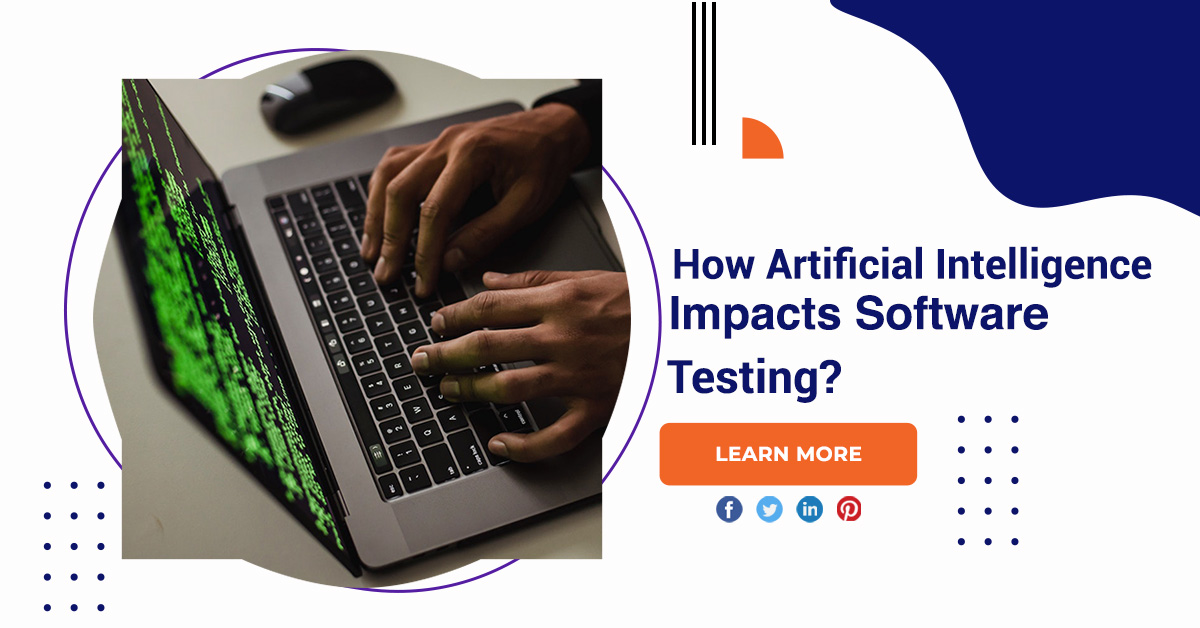How Artificial Intelligence Impacts Software Testing?
Artificial intelligence has become essential for analyzing large amounts of unstructured data and identifying various patterns and relationships. In addition, it optimizes processes in several domains, including voice recognition, autonomous vehicles, computer vision, healthcare, financial technology, and software testing.
Artificial intelligence impacts software testing
What does AI-based testing consist of?
AI-based testing can positively impact several aspects of software testing, especially when it comes to test automation. Many different tools and frameworks have emerged to solve various problems related to test automation. One of the main reasons is the use of static locators. When using static locators, you use only one attribute of an element to uniquely identify it on the page. If it changes, the test breaks and the testers end up spending a significant amount of time troubleshooting and fixing the problem.
Tester’s role in AI-based testing
Artificial intelligence can help write tests on its own and validate paths that were previously not considered. Another big advantage is that AI can run tests based on different needs and perform maintenance tasks without interference. With constant development setting a more competitive pace, combined with the push for AI-inspired automation a tester could be forgiven for wondering if testing and QA teams are under siege risk of being eliminated or replaced, as in the manufacturing industry but rather can significantly increase productivity by aiding program development.

How AI is shaping the future of testing?
How artificial intelligence is shaping the future of testing. This article discusses how AI will impact software testing and help solve some of the biggest challenges around test automation. In the future, the way testers will perform automated testing will change significantly in terms of adopting a risk-based approach to software testing. This means that testers will not have to spend time generating test data based on production users, as the AI will do this step automatically. This helps increase test coverage and makes automated testing much more efficient as it is built on real user flows. Users can independently register tests and use tests automatically generated by artificial intelligence to create effective automated test suites.
Why software testers shouldn’t fear AI technology?
Software testers have nothing to fear and can earn more than ever in the future, and there is great concern that machine learning and artificial intelligence could replace the jobs. This is simply not the case and is nothing more than a false fear that absolutely cannot happen. There are countless open-source testing tools that have greatly helped in automating individual test cases and in areas such as compatibility, recovery, usability, and user interface.
Key things
AI-based testing can positively impact several aspects of software testing, especially when it comes to test automation. Dynamic locators reduce test maintenance time and allow testers to focus on more critical tasks. AI can learn different user flows and create test cases based on real user data, increasing test coverage and making automated testing much more efficient. Although things may be done differently in the future, manual testers will always be needed to design test strategies.

Conclusion
Artificial intelligence technology should be seen as an essential tool that will redefine the future unlike anything we have seen before. Artificial intelligence should never be considered a major threat to the security of software testing tasks.







